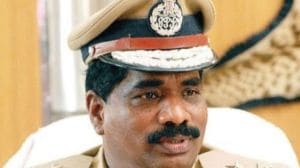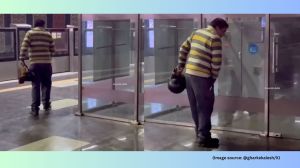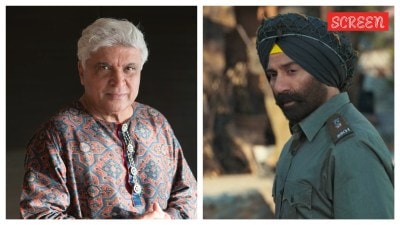Stay updated with the latest - Click here to follow us on Instagram
Bargain for justice
What worked for all three men was plea bargaining their lawyers tactfully bargaining with the prosecutor and the complainant...
* Mumtaz Khan was arrested in 2001 under the Wildlife Protection Act for possessing rare birds. Though released on bail soon,court dates kept him busy till recently.
* Ramesh was booked in 2001 under various sections of the Indian Penal Code for rash and negligent driving,and causing injuries to the complainant. Eight years of legal wrangling later,he is a free man.
* An FIR for obstructing and assaulting a public servant on duty was lodged against Riaz Beg in 2000 based on a complaint by a policeman. Now,he has finally got off the hook.
What worked for all three men was plea bargaining their lawyers tactfully bargaining with the prosecutor and the complainant.
A relatively new mechanism to clear the huge backlog of cases,plea bargaining as a concept was introduced in the Code of Criminal Procedure (CrPC) in July 2006. The Delhi judiciary is using it now to clear cases with chances of a quick and mutually satisfactory settlement.
And the success of this initiative,recently started by the Chief Metropolitan Magistrate (CMM) at Tis Hazari Courts,is apparent: Almost 30 cases,lingering for several years,were disposed of by this procedure in just the past one month.
Most,in fact,were settled in a single hearing.
WHAT is plea bargaining?
It is an exercise to arrive at an agreement in a criminal case in which the prosecutor and the accused assemble to settle a case. While the accused agrees to plead guilty,or not to contest the charges,the prosecution concedes leniency in punishment in exchange to the plea.
The prosecution may agree to charge the accused with a crime of lesser degree by dismissing some charges,or can promise leniency in punishment against the original charges.
WHO can plead guilty?
As per the CrPC,an accused being tried under an offence that does not entail a maximum punishment of more than seven years imprisonment can move an application before the trial court expressing desire to plead guilty.
Plea bargaining,though,is not available to certain kinds of offences. These include offences against woman,children below 14,and against any juvenile or child as defined under Juvenile Justice (Care and Protection of Children) Act,2000. An accused also cannot seek leniency if punished for same offence in a different case earlier.
HOW it works
The accused must move an application in writing before the trial judge with a brief description of the case and supported by an affidavit swearing it was a voluntary application. On the date of hearing,the judge examines the accused alone this in-camera proceeding is mandatory to ensure the application is voluntary and genuine.
The court then proceeds to a settlement,giving time to the prosecution and the accused to work out a mutually satisfactory disposition. After settlement is mutually agreed upon,the court has to hear both parties and decide on either a reduced sentence,entitlement of release on probation of good conduct,or after admonition.
WHY it is win-win for all
The biggest benefit plea bargaining is it helps reduce case load for courts as well as prosecutors. It also helps reform the offenders by accepting responsibility for their actions and eliminates an expensive,time-consuming trial.
HOW Delhi courts deal with plea bargaining
By provisions of CrPC,magisterial courts have been empowered to deal with plea bargaining. Under the High Courts guidance,the Chief Metropolitan Magistrate has developed a plan to earmark courts in all five district court complexes to specifically deal with plea bargaining applications.
The pilot project started on July 27 at Tis Hazari,where a special court sits from 3 pm to 5 pm to hear such pleas. The practical directions note issued by the Chief Metropolitan Magistrate says in order to ensure quick disposal,a judge should make all possible efforts to complete the entire process in one sitting,and in any event within a period of one month.
WHO says WHAT
VIKAS SINGH,former Additional Solicitor General and Supreme Court lawyer,appreciated the move and said it would primarily help victims agonised by long trial and no monetary relief. Even if an accused gets convicted,a victim cannot see it as justice being done,for even after a long-drawn trial,there is nothing in store for him.
PIYUSH PRABHAKAR,advocate who represented one of the accused in a case of successful plea bargaining: The move holds promise for speedy decision of trivial matters awaiting courts final word. If implemented successfully in coordination with the legal fraternity,many litigants can get instant reprieve.







